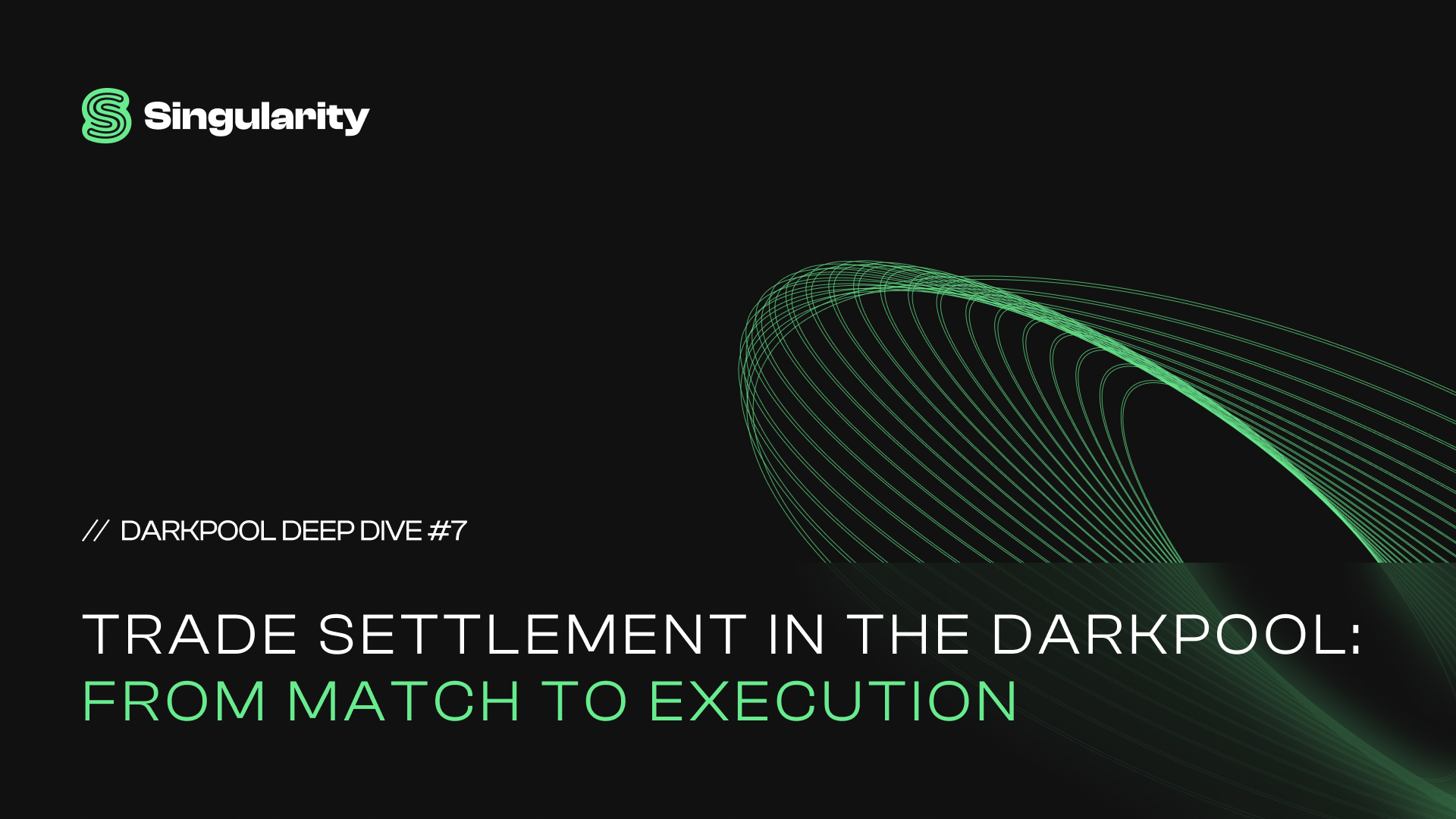
In the last edition of our Darkpool Deepdive Series, we explored how Singularity’s book nodes match encrypted orders without ever revealing trade details.
But matching is only half the story.
Once two orders are matched - securely and privately - how are those trades executed? How is settlement handled when the system still doesn’t know what was traded, in what amount, or by whom?
In this edition, we unpack how Singularity settles trades inside a 100% dark environment, supporting both full-order execution and flexible handling for partial fills - all without exposing sensitive information.
In traditional DeFi venues like AMMs or public orderbooks, settlement is entirely transparent - order details are published and trades are executed directly on-chain.
This is great for retail, but fails to meet the discretion and control required by institutions and sophisticated market participants, as well as anyone who cares about privacy for that matter.
Singularity’s settlement layer was designed from the ground up to support:
It supports two primary execution paths:
When two orders are perfectly matched (same asset pair, compatible price, and size), Singularity executes a fully automated and private settlement.
This mimics the privacy outcomes of OTC execution in TradFi - but without any manual negotiation or coordination between parties.
When large or complex orders can’t be fully filled, Singularity supports programmatic settlement for the matched portion - while preserving privacy for the rest.
This is especially useful for:
This allows continuous liquidity without revealing unfilled intentions, unlike traditional orderbooks.
Regardless of the execution path, two principles remain constant:
All settlement communications and confirmations are handled under privacy-preserving cryptographic frameworks - invisible even to validators and indexers.
1. Match - Book node identifies compatible encrypted orders
2. Notify - Encrypted match confirmations sent to involved users in the form of settled orders
3a. Full Match - Orders are settled automatically via encrypted smart contracts
3b. Auto-Split - Partially matched orders are settled; remaining amounts stay in the pool
4. Finalize - Private settlement completed - no trade data is exposed on-chain
Settlement is where execution risk and privacy risk converge.
In public DeFi, every trade leaks intent - causing slippage, frontrunning, and strategy exposure.
In TradFi, OTC settlement is manual, opaque, and often slow.
Singularity offers a third way:
A new execution standard for a new generation of traders.
Thanks for reading yet another edition of Singularity’s Darkpool Deepdive series. Stay tuned for the next one!
Check out our blog here.